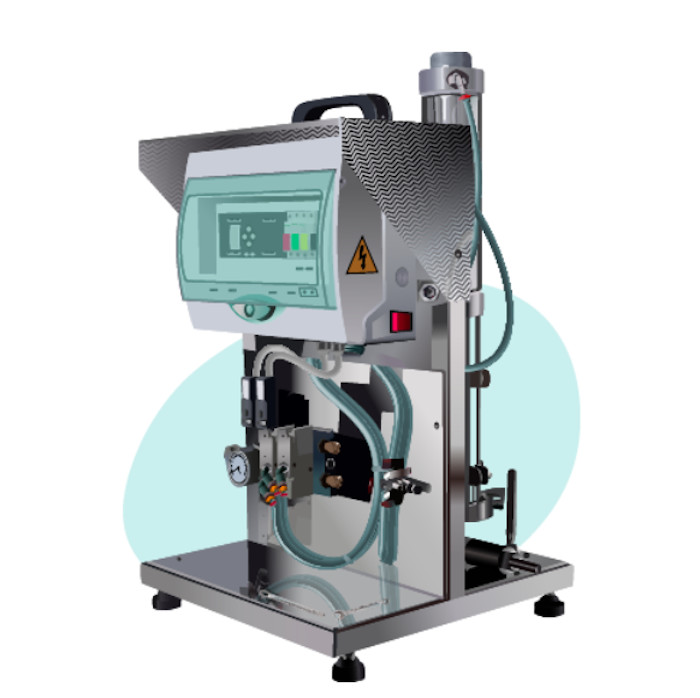
There’s a new piece of lab tech that cuts time and increases extraction. We asked Shane Eaton – professor by day, cocktail enthusiast by night - to investigate.
Solid-liquid extraction is a crucial process for the drinks industry – just look at winemaking, which extracts colouring agents, flavour compounds and tannins from grapes, or in producing liqueurs from fruits or herbs.
Typically, it’s carried out using maceration by immersing a solid with extractable compounds in a liquid solvent. With time, the liquid begins to enrich itself with certain substances contained within the solid.
However, the standard maceration process for solid-liquid extraction has several disadvantages, including a large volume of liquid solvent required, long extraction time and, due to the elevated temperatures required to speed up the process, a degradation of any heat-sensitive components within the solid.
To overcome these issues, new solid-liquid extraction techniques have been introduced, including ultrasound-assisted extraction, which I’ve written about before for Class. However, the aggressive nature of acoustic waves in ultrasonic extraction leads to degradation of the solid.
Enter an alternative method which does not suffer such effects. Known as rapid solid-liquid dynamic extraction, it was invented by Prof Daniele Naviglio of the Department of Chemical Sciences at University of Naples Federico II.
Instead of acoustic waves, Naviglio’s invention achieves solid-liquid extraction by generating a pressure difference between the inside and the outside of a solid within a liquid solvent.
I won’t go further into the science here, but experimental tests carried out by Naviglio have shown that for 200 different plants and vegetables, most solids can be fully extracted within two hours.
The Naviglio extractor is now commercially available and is manufactured by Atlas Filtri, an Italian company specialising in water treatment and filtration solutions.
Organoleptic tests
For the cocktail industry, solid-liquid extraction is fundamental to obtain alcoholic extracts of fruit peels, flowers, leaves and other botanicals, which are then mixed with water and sugar to obtain the finished product. Naviglio’s research team have performed a study to compare the quality of extraction of alcoholic bitters of Naviglio extraction and traditional maceration.
In addition to more efficient extraction, organoleptic tests showed that the cocktail bitters produced with Naviglio extraction had a higher quality taste compared to those prepared by maceration. Naviglio has also applied his method to produce limoncello in just two hours, avoiding the long conventional maceration process, which requires over a week.
Famed Italian bartender Dario Comini, of Nottingham Forest in Milan, believes there is much potential for the Naviglio extractor. “The new model has applications in many sectors and the smaller footprint makes it ideal for most cocktail bars. For even smaller volumes less than 0.5 litres, I would argue that the ultrasonic homogeniser is another great candidate for solid-liquid extraction, which also lets you do the preparation right in front of the customer.”
One of the leading proponents of the Naviglio extractor is Devis D’Ercole, the bar manager of Shake in San Benedetto del Tronto in Marche, Italy. D’Ercole exploits the 2-litre capacity Naviglio extractor for many of his cocktail preparations.
“Compared to ultrasounds, I have found the Naviglio extractor to provide an even better taste, which I attribute to the gentler extraction process. I have applied it with great success to make a pandan-infused rum, a wild herb liqueur, a peperoncinoinfused mezcal, and a coffee liqueur with a taste better than many commercially available versions.
"All these preparations were made with the same simple tool in less than three hours, saving me both time and money. I even tried something a bit more extreme with an Old Fashioned made of a whiskey infused with oud, a rare type of fragrant and dark resinous wood. Although the extraction took longer, the result was simply incredible, with complex flavours of resin, bark, and earth.”
Although D’Ercole is presently the only bartender with access to Naviglio’s small-format solid-liquid extraction tool, expect many more bartenders to jump on the bandwagon and begin experimenting with this simple and alternative method to develop compelling new drink preparations.
For more details: nuovaestrazione.it


